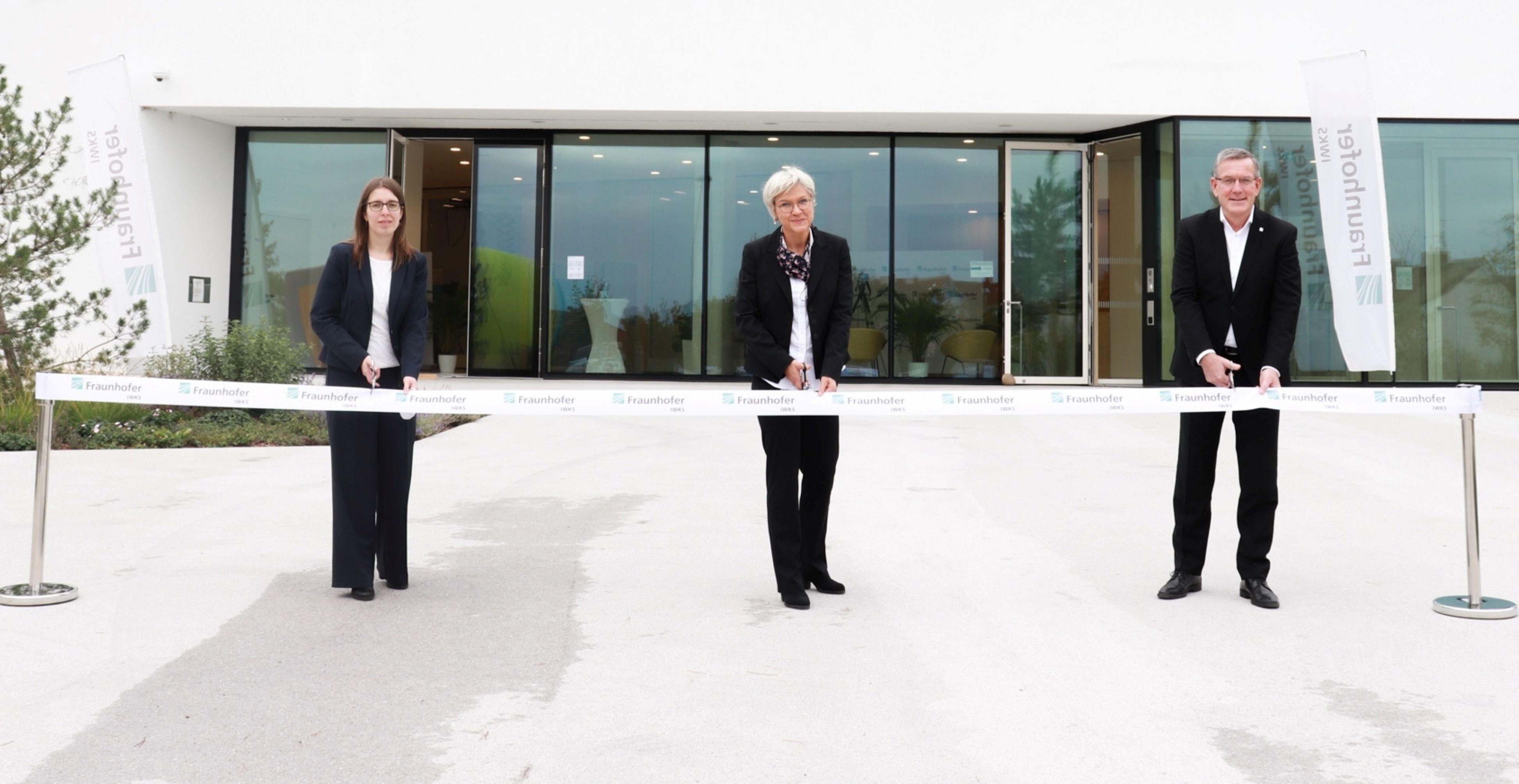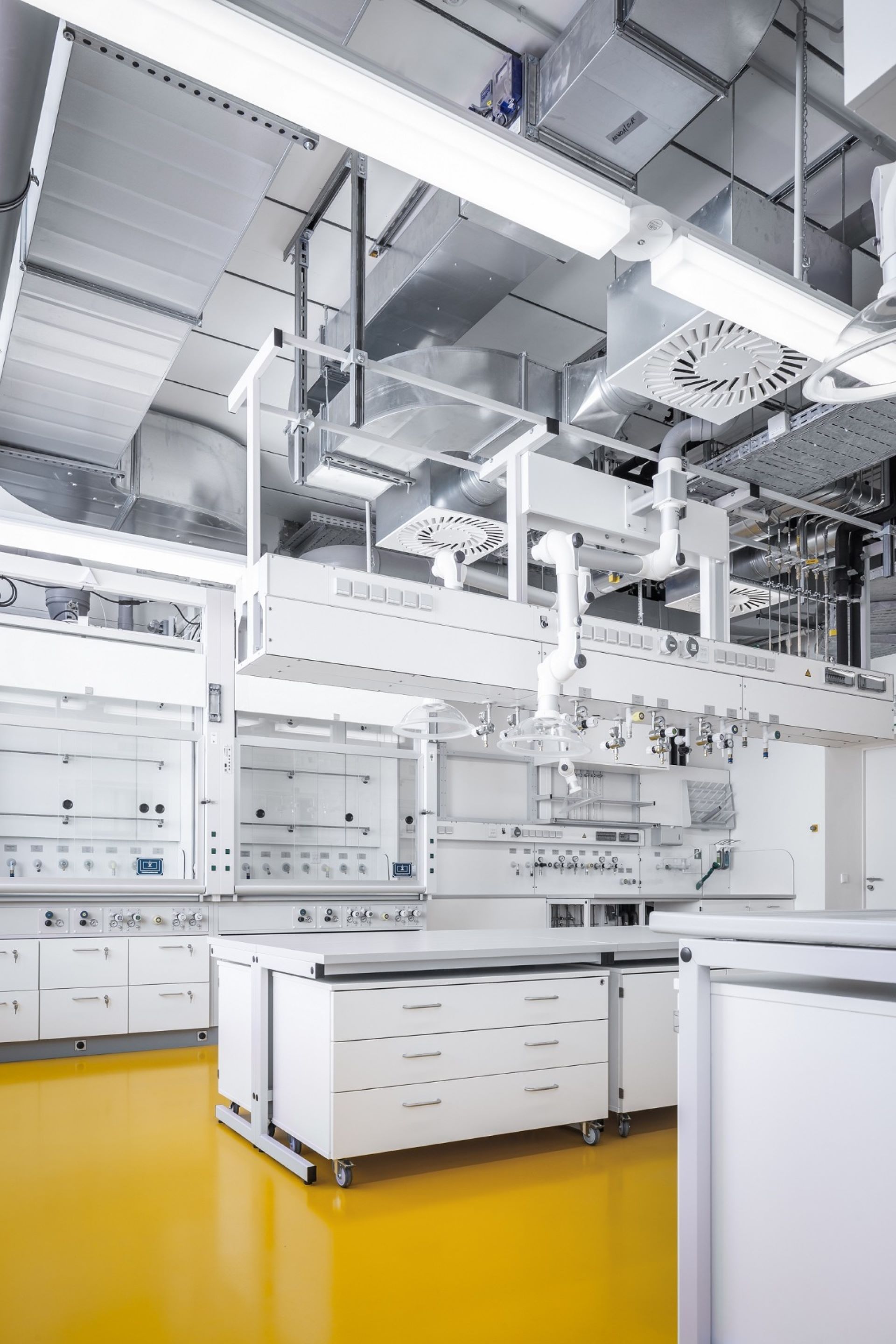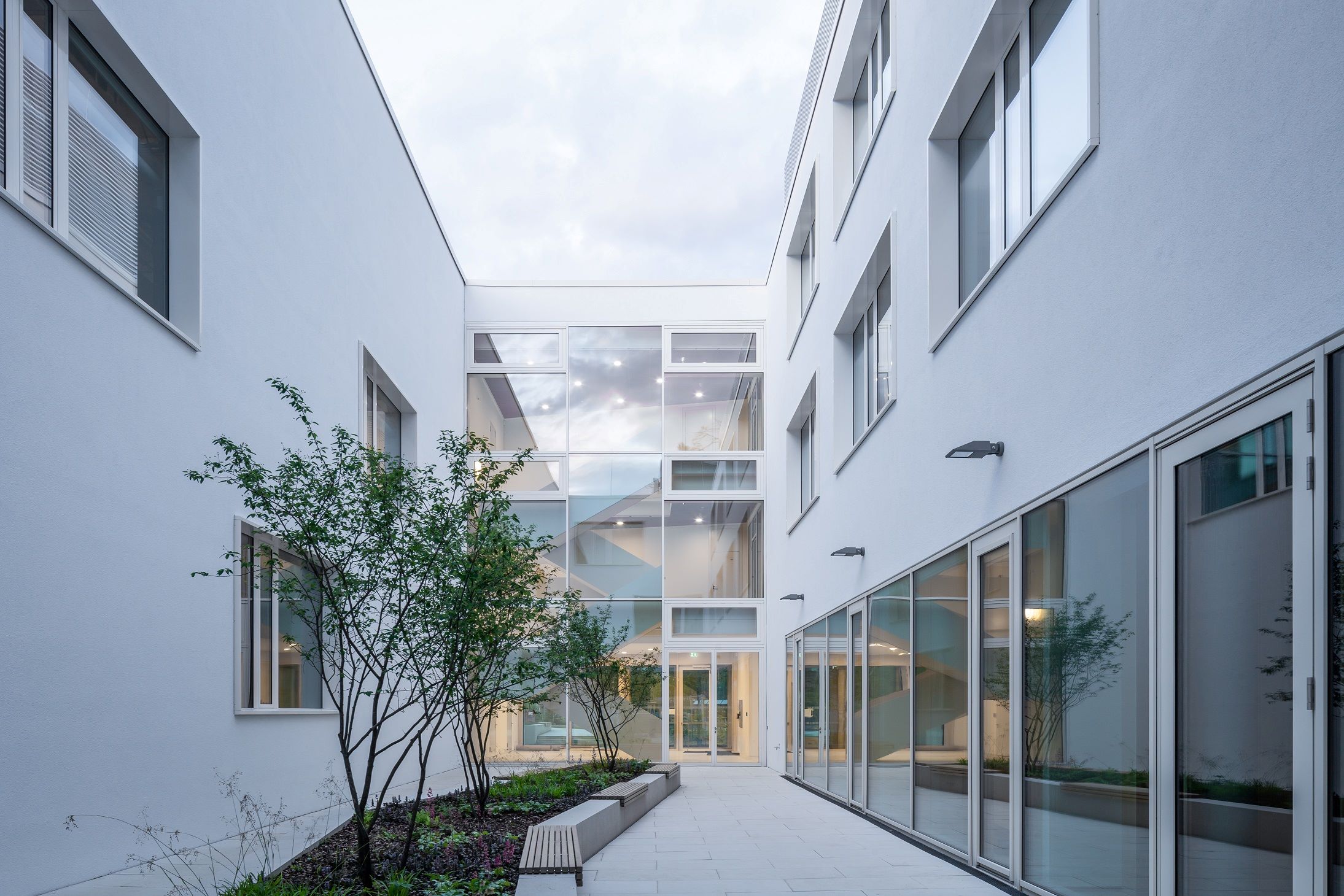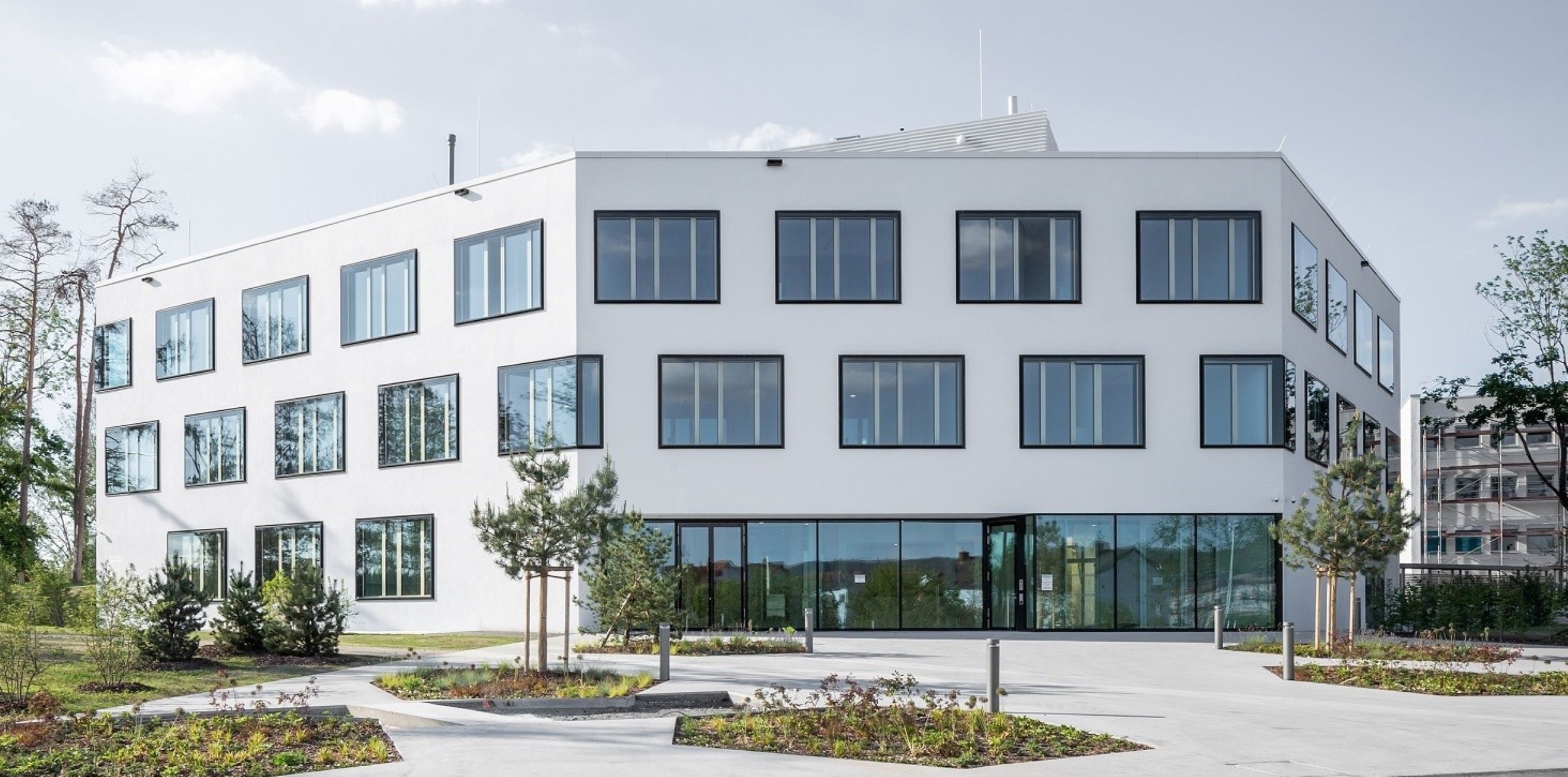Fraunhofer IWKS presents new building in Alzenau



The Fraunhofer Research Institution for Materials Recycling and Resource Strategies IWKS has officially opened its new building in Alzenau. Due to the corona protection measures, the opening took place as an online event. Dipl.-Kfm. Andreas Meuer, Director of Finance and Digitization of the Fraunhofer-Gesellschaft e.V. attended the opening ceremony in person. Judith Gerlach, Bavarian State Minister for Digital Affairs, Dr. Sabine Jarothe, Head of Department, Bavarian State Ministry of Economic Affairs, Regional Development and Energy, and Dr. Alexander Legler, District Administrator in the District of Aschaffenburg, were digitally connected or sent their congratulations by video message. Together with her deputy Dr. Andrea Gassmann as well as Mr Meuer, Prof. Dr. Anke Weidenkaff, Director of Fraunhofer IWKS, cut the symbolic ribbon during the opening ceremony. The move into and use of the new research building has now officially begun.
"The Fraunhofer Research Institution for Materials Recycling and Resource Strategies IWKS promotes the development of sustainable technologies. It strengthens the non-university research infrastructure in Lower Franconia and makes Alzenau a modern and efficient location for cooperation in the Rhine-Main metropolitan region. This cooperation is transnational and connects partners from science and industry. This makes the facility in Alzenau a beacon project that radiates from the Bavarian Lower Main region to the whole of Europe", congratulated Dr. Markus Söder, Bavarian Minister-President.
"The subject of sustainable value creation, the protection of climate and environment and the combination of ecology and economy have become increasingly important in recent years. Natural resources are limited but are being consumed faster than ever by the growing world population", explained Fraunhofer President Prof. Reimund Neugebauer. "The research by Fraunhofer is making an important contribution to developing new, more sustainable technologies, optimizing existing ones and materials are used in the sense of optimized resource efficiency in the economic and recyclable materials cycle. The Fraunhofer Research Institution for Materials Recycling and Resource Strategies IWKS is located precisely at this interface. The two new buildings in Alzenau and Hanau will considerably improve and expand the research infrastructure for local scientists".
Digital Minister Judith Gerlach explains: "Sustainable action is more important than ever and is also personally very close to my heart. The expansion of the Fraunhofer IWKS in Alzenau is therefore the right step in the right direction, especially for me as Minister of Digital Affairs. After all, comprehensive digitization only works if we handle resources carefully. The so-called 'rare earths' for example are crucial for the construction of smartphones and should be reused. The fact that digitization and sustainability are being brought together here in our country is a good signal for the entire region. Also, it is a model for the future.”
Technical functionality in a natural setting
A visually unique and functional new research building for Fraunhofer IWKS has been build in Alzenau. The new office, laboratory and technical center building extends the existing building of Fraunhofer IWKS in Alzenau by about 2400 m² of effective area and offers space for about 80 employees. The architect of the building is Bruno Vennes from the lead planning office BHBVT Architects in Berlin. The office successfully prevailed in the EU-wide public call for tender against 30 other architectural firms and was awarded the planning contract. The selection committee, which was made up of representatives of the Fraunhofer-Gesellschaft and the Free State of Bavaria, was convinced by the unusual yet harmoniously integrated heptagonal structure, primarily because of its functionality and the aesthetic integration of the highly technical user requirements.
Sustainability - not only in research
The new building in Alzenau has been constructed following the guidelines for sustainable construction. In accordance with the evaluation system, various economic, ecological and socio-cultural parameters were taken into account and examined during the construction planning and execution. During construction, particular attention was paid to sustainable heating and cooling. With many other contributions to the construction project, for example the testing for sustainability of all components and materials used or the deliberately economical use of space for the building on the near-natural institute premises in Alzenau, Fraunhofer is aiming for certification with BNB gold status.
"We are very pleased to move into our new building and especially the technical site and laboratories. The innovative new building will enable us to push forward top-level research at the Bavarian Lower Main even further and establish ourselves as a central point of contact in matters of recycling and resource management," reports Fraunhofer IWKS Director Prof. Dr. Anke Weidenkaff.
"In Alzenau, the research work at Fraunhofer IWKS will focus primarily on bio-economy and digitization of resources. In order to keep recyclable materials successfully in the life cycle, it not only needs advanced recycling technologies, but also digital tools for resource collection, calculation and design for recycling. The new facilities will enable us to find new solutions to important research questions that will enable a more sustainable recycling economy and further expand our existing know-how in this field, thus providing even greater added value for the industry in Bavaria and beyond," said Prof. Weidenkaff.
Funding sponsors:
Federal Ministry of Education and Research, 25 %
Bavarian State Ministry of Economic Affairs, Regional Development and Energy, 25
European Union - European Regional Development Fund, 50
Total cost of the new building: 33 million euros
